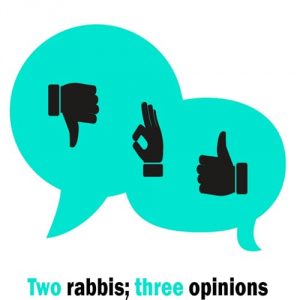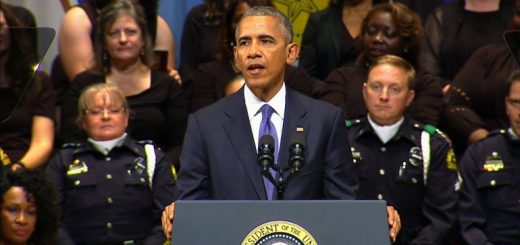Two Rabbis, Three Opinions Episode 20

Have we become hooked on segulot? Why have they become the rage in recent decades, with no end in sight to their popularity? What does this tell us about the current state of emunah within the Torah world? Have superstitions ever crept into accepted public practice? Finally – do we pay a price by accepting things that we cannot understand, where there is no basis in the primary works of our mesorah? All this and more, on the latest episode of Two Rabbis, Three Opinions.



People who read this blog religiously will enjoy a magical deliverance from all their woes. Potent hidden messages are tucked in among the pixels.
About the piyut Malachei Rachamim:
This seems to be a mournful declaration that our prayers somehow can’t get to HaShem directly, so we need to use angelic intermediaries to get our foot in the door. How does this thinking not open the door to intermediaries and segulot in general?
There are some who do not say machanesai rachamin or barchuni le’shalom or ba’marom yilamdu or etc. to avoid any hint of malachim being anything but God’s messengers. My beloved teacher, Rabbi Michael Bernstein ztl would quote the passuk in Tehilim, oseh malachov ruchot, to define the role of an angel.
SEGULOT are different can of …..
On a more serious note, is a false premise ever a good thing?
I’d like to say something negative about stupid segulot, but it might be unlucky
Reb Shayale of Kerestir, and segulos in general, were discussed at the 2019 Agudah Convention’s “no-holds-barred session”(as the Agudah described it on their website) titled “I’m Asking for a Friend” with Rabbi Aaron Lopiansky and Rabbi Elya Brudny and moderated by Yisroel Besser, excerpted and linked below.
Yisroel Besser, as he also wrote in the Mishpacha article quoted at the beginning of the Two Rabbis podcast, shared at the Agudah session that he “wrote the book” on R. Shayale. He gets calls every day of the week about people saved from speeding tickets and building violations. He quipped that he is now afraid that after 120 years, all these violations will be on his head(Minute 30) !
R. Lopiansky mentioned the Rambam(Hilchos Avodas Chochavim 11:12) that whispering an incantation over a wound is forbidden because one makes Torah to “refuas guf” rather than “refuas nefashos.” He then quoted a colorful mashal from R. Yosef Liss, an Alter Mirrer, to illustrate this. An unlettered bal agalah comes into the beis midrash and asks the shamesh for all “Three Bavas,” insisting that the Gemaras be thick “with the Rif.” He then took all three volumes to stand up and reach a bag of cheese and bread hidden on one of the top shelves ! The Gemara, then, is merely a heicha timza, an expedient, for the bread and cheese. This is what the above-mentioned Rambam meant(Minutes 25-27).
R. Lopiansky was at Reb Shayale’s grave and said Tehillim, having been inspired because he opened his house to many people; more than that begins to creep into areas that are of the above Rambam’s violation of “refuas haguf.” R. Lopiansky doesn’t know how we Litvaks got farshlepped with this attitude towards segulos, which is a bad chinuch(Minutes 28-29). Both R. Lopiansky and R. Brudny wondered why people don’t emulate Reb Shayaleh and open their home as a segulah(Minute 32). This was also Yisroel Besser’s point in the Mishpacha article, as R. Adlerstein mentioned in the podcast(Minute 25 of podcast).
R. Brudny, who likewise agreed that Reb Shayaleh was a holy person who did great chasadim, said that the fact that the segulah of R. Shayeleh works, causes a nisayon for people to run to R. Shayalah rather than relying on Hashem. R. Brudny also said that some people say very cynically that the travel agent industry made all of these yahrtzeits and they are laughing all the way to the bank(Minutes 30-32). See video in link:
https://matzav.com/watch-rav-aaron-lopiansky-elya-brudny-thursday-night-at-the-2019-agudah-convention/